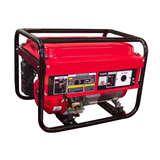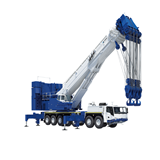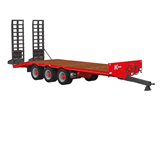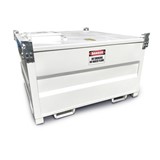Despite investment overseas in synthetic fuels by industry heavyweights such as Shell, high start-up costs for the new technologies and fluctuating oil prices are deterring investors locally, experts say.
Gas to liquid (GTL) conversion technology is the term for complex processes to change the composition of gas into a liquid to create synthetic fuels including petrol, diesel, liquid petroleum gas (LPG) and aviation fuel.
As Australia pushes to reduce its dependence on imported oil, MineLife senior resource analyst Gavin Wendt says the future of synthetic fuel technologies depends on the price of crude oil.
"Higher oil prices provide the incentive to look at ways and means of producing synthetic fuels, other than simply refining crude oil," Wendt told reporters.
However, he says a major barrier is the high price of setting up a processing plant to make a product that is a commercial alternative to oil-based fuels.
It would cost $1 billion or $2 billion to build a plant that produces synthetic diesel at $40 or $50 a barrel.
But if the price of oil drops dramatically, people won't buy the synthetic product, leaving the owner of the plant unable to get a return on the investment, Wendt said.
"You'll be left with a white elephant," he said.
"Financially it might be more lucrative down the track, but also it's going to cost you a hell of a lot more ... and nobody's been prepared to bite the bullet."
Adelaide-based synthetic fuel company Syngas plans to build a large-scale premium facility in South Australia to produce diesel from gasified coal and biomass, such as wood, leaves or sugarcane.
Managing director Merrill Gray said synthetic alternatives will only be commercially viable if the production cost per barrel is substantially lower than oil-based fuels.
At its all-time peak before the onset of the global financial crisis, oil prices hit $US145 a barrel.
As economic activity slumps, so has the price of oil, making it difficult for synthetic petroleum makers, although oil prices are still over $US110, based on the Brent crude price in London.
"The current oil prices are starting to open up opportunities for synthetic fuel products to be profitable," Gray said.
But, "the global financial crisis has made it difficult and you have to brave to look forward long term."
Independent corporate analyst Peter Strachan says while there's been a lot of noise on the GTL scene, there has not been much action in Australia.
"There's been a lot of arm waving," he told reporters.
"A lot of these companies haven't even actually found any gas, yet they're talking about what they're going to do with it when they find it."
But while the price of oil stays high, Australia's 4,000 billion cubic metres of natural gas reserves means the nation is well-placed to tap into synthetic fuel production.
The synthetic fuels option has been touted as a viable alternative which is cleaner, with fewer carbon emissions.
The Germans created the technology almost a century ago, famously using it to power their Nazi war machine.
The South Africans invested in it during apartheid, when there were restrictions on trade, and the Chinese use it to produce over six million tonnes of synthetic diesel each year.
Energy heavyweight Shell sank $US18 billion into its Pearl GTL plant in Qatar and aims to produce 140,000 barrels of naptha diesel each day from the Arab state's abundant gas supplies.
The most well-known form is the German Fischer-Tropsch process, which involves a serious of chemical reactions to convert the gas into liquids, producing various synthetic fuels.
The lesser known Dimethyl ether (DME) is made by converting natural gas into synthetic gas (syngas) which is then converted in methanol, an ultra-clean, renewable, low-carbon fuel commonly used in diesel or petrol.
All of these fuels are traditionally created from crude oil, which Australia imports from the vast oilfields of countries like Russia and the Arab nations.

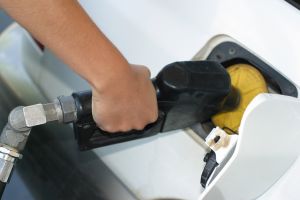
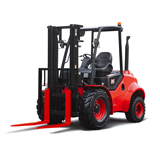
-160x160-state_article-rel-cat.png)
-160x160-state_article-rel-cat.png)


-160x160-state_article-rel-cat.png)




